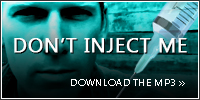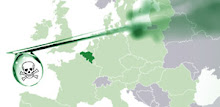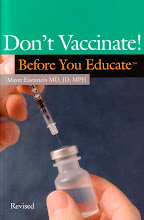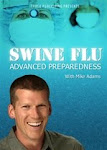 The bill furnishes the Governor with the power to mobilize the National Guard for active duty to achieve and enforce the bill’s objectives.
The bill furnishes the Governor with the power to mobilize the National Guard for active duty to achieve and enforce the bill’s objectives. Photo: Pennsylvania’s Governor Edward G. Rendell
Pennsylvania House Bill 492, the Emergency Health Powers Act, was introduced by Rep. Ken Smith (D) on February 18, 2009, as an amendment to The Administrative Code of 1929 which outlines provisions for dealing with public health emergencies. HB 492 contains provisions that, during a health emergency, allow for the public takeover of private property and infrastructure, restriction of free trade, quarantines, mandatory medical treatments, and forced vaccinations.
Similar to the Massachusetts pandemic bills that were passed by both the House and Senate back in October, HB 492 follows suit with a laundry list of unconstitutional mandates not lawfully afforded to the State, even during a pandemic. A final, combined version of the two Massachusetts bills is currently awaiting passage.
Though the Pennsylvania bill has been sitting with the Veterans Affairs and Emergency Preparedness Committee since February, there is a possibility it could move out of committee and be rushed for a vote in the very near future. Because many other states have begun trying to replicate the Massachusetts template for government tyranny during a crisis, it is crucial for the public to stop this bill and others like it before it ever makes it to the Congressional floor.
Contents of HB 492Section 2523-D furnishes the Governor with the power to mobilize the National Guard for active duty to achieve and enforce the bill’s objectives.Section 2532-D allows for the control of facilities, property, trade, food rationing, commodities distribution and the movement of people during a crises.Section 2542-D authorizes the coercion of persons to submit to medical examinations, testing, and any other medical treatments deemed necessary by the public health authority. The public health authority is not subject to any judicial restraints or accountability and persons refusing to comply with its mandates will face third-degree misdemeanor penalties...
Though the Pennsylvania bill has been sitting with the Veterans Affairs and Emergency Preparedness Committee since February, there is a possibility it could move out of committee and be rushed for a vote in the very near future. Because many other states have begun trying to replicate the Massachusetts template for government tyranny during a crisis, it is crucial for the public to stop this bill and others like it before it ever makes it to the Congressional floor.
Contents of HB 492Section 2523-D furnishes the Governor with the power to mobilize the National Guard for active duty to achieve and enforce the bill’s objectives.Section 2532-D allows for the control of facilities, property, trade, food rationing, commodities distribution and the movement of people during a crises.Section 2542-D authorizes the coercion of persons to submit to medical examinations, testing, and any other medical treatments deemed necessary by the public health authority. The public health authority is not subject to any judicial restraints or accountability and persons refusing to comply with its mandates will face third-degree misdemeanor penalties...













.bmp)
No comments:
Post a Comment